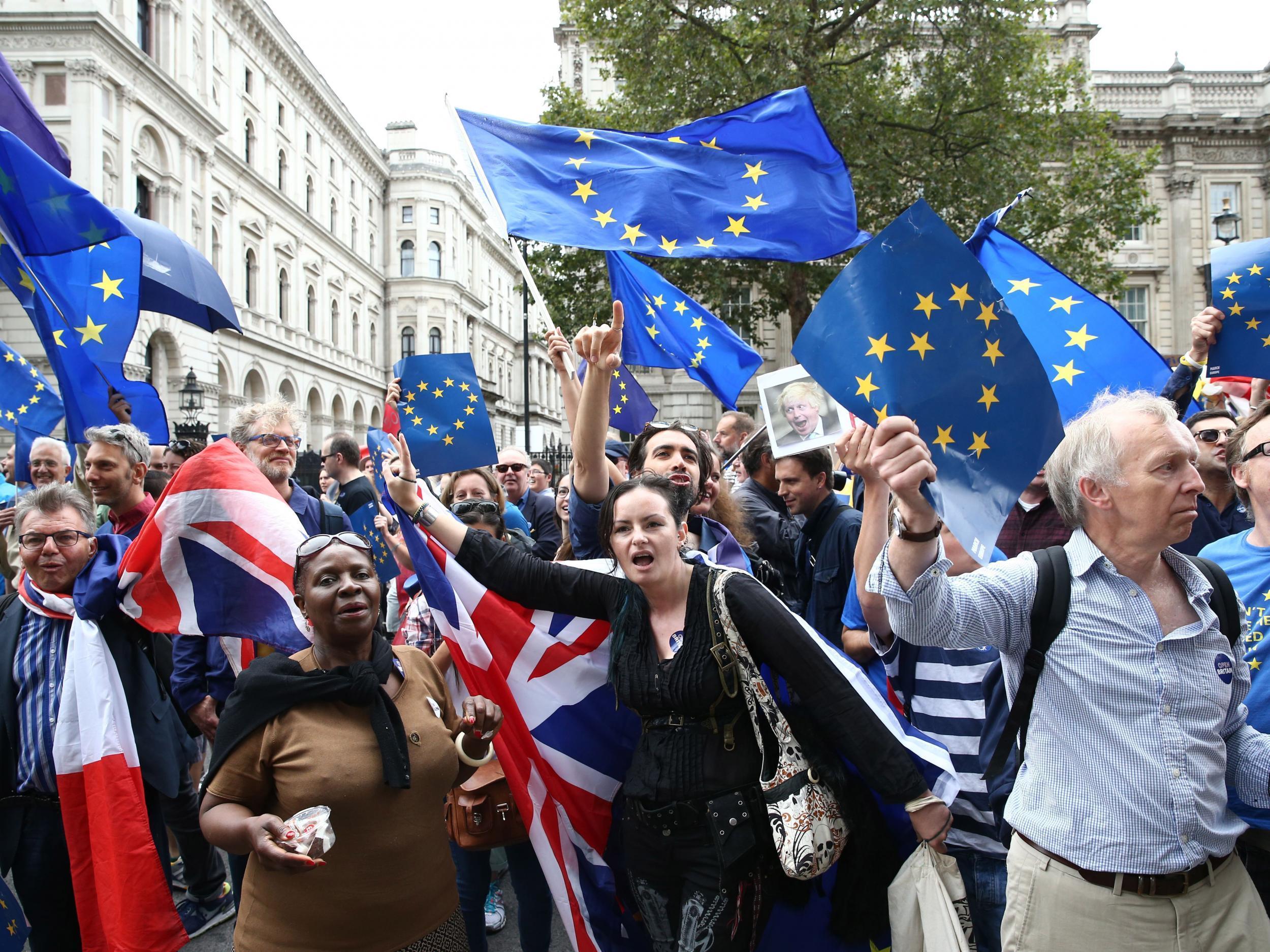Brexit report promoted by right-wing press condemned by economic experts
Exclusive: Academic report seized upon by leading Brexiteers and widely publicised by media is itself criticised for implausible conclusions

A stinging academic critique of the Treasury’s economic impact analysis of Britain leaving the European Union, widely hailed by Brexiteers last week, has been sharply criticised by leading trade economists.
A report by the Centre for Business Research at the University of Cambridge was widely publicised by the media, featuring prominently in the Daily Mail, Daily Express and The Times.
Dr Graham Gudgin of the CBR criticised the Treasury’s analysis, which predicted a major hit to the UK economy by 2030 if the UK experienced a “hard Brexit”, in unusually strident terms describing it as “very flawed and very partisan”.
Dr Gudgin said he “suspected” Treasury civil servants had been leaned on by ministers to produce the results David Cameron and George Osborne wanted.
This echoed the complaints of many Brexiteers during the referendum campaign about the Treasury’s work.
The former Work and Pensions Secretary Iain Duncan Smith approvingly cited the Cambridge report in an opinion column for The Sun and Dr Gudgin himself was interviewed on the BBC Today programme on Friday where he reiterated his view that the Treasury’s report had been unscientific and partisan.
The main criticism the Cambridge report authors made of the Treasury’s work was that its economists had used a so-called “gravity model” to calculate the likely loss of trade for the UK from exiting the EU’s single market.
The Treasury said British GDP could be lower by between 4.6 and 7.8 per cent by 2030 relative to staying in, equivalent to a cost of £4,300 for each of the UK’s households.
The Cambridge report says that the Treasury’s gravity model – which assumes that countries naturally tend to do more trade with other countries that are geographically nearer to them — is “controversial and as applied by the Treasury is flawed”.
But a number of respected trade economists contacted by The Independent have defended the Treasury’s analysis and criticised, in turn, the analysis of the CBR.
“The HMT [Treasury] use of gravity model was perfectly in line with best practice. It was classic evidence-based policy analysis”, said Richard Baldwin, Professor of International Economics at The Graduate Institute of Geneva.
Gudgin is using evidence this way a drunk uses a lamp post – for support, not illumination.
Professor Baldwin went on to accuse Mr Gudgin himself of engaging in “policy-based evidence making” and “using evidence the way a drunk uses a lamp post – for support, not illumination”.
Other trade economists also endorsed the Treasury’s methodology.
“The gravity model has a great deal of predictive power and the exercise that they [Cambridge] did to show that it was fragile was not very valid,” said Alan Winter, Professor of Economics at the University of Sussex and director of the UK Trade Policy Observatory.
“There’s absolutely no controversy about gravity models,” said Swati Dhingra, assistant professor at the London School of Economics, also pointing out that gravity models are the subject of the second chapter of the new handbook of international economics.
Thomas Sampson, also an assistant professor at the LSE, added that the Cambridge team’s own analysis was itself methodologically flawed.
“They arbitrarily drop some of the fixed effects [on bilateral trade] from their gravity equation. That step is completely non-kosher and likely to lead to biased estimates of the effect of EU membership on trade,” he said.
Other economists said the Cambridge analysis used an unreliably small number of data observations to reach its headline conclusions.
The view that UK trade volumes will benefit from leaving the single market is held by only a tiny minority of trade economists.
The majority opinion – as revealed in numerous surveys of the profession – is that UK trade will be lower and that the cost of this would not be offset by new trade agreements that Britain may be able to forge outside the bloc.
The Treasury’s estimate of the negative impact of Brexit by 2030 was in the same ballpark as estimates from the National Institute for Economic Research, the OECD, Oxford Economics and the London School of Economics’ Centre for Economic Performance.
The one formal study which pointed to a boost to GDP came from a group called Economists for Brexit, which predicted a four per cent boost to GDP relative to otherwise by the end of the next decade.
Even the Cambridge study shows a negative long-term effect on UK trade and GDP from leaving the EU.
Subscribe to Independent Premium to bookmark this article
Want to bookmark your favourite articles and stories to read or reference later? Start your Independent Premium subscription today.

Join our commenting forum
Join thought-provoking conversations, follow other Independent readers and see their replies